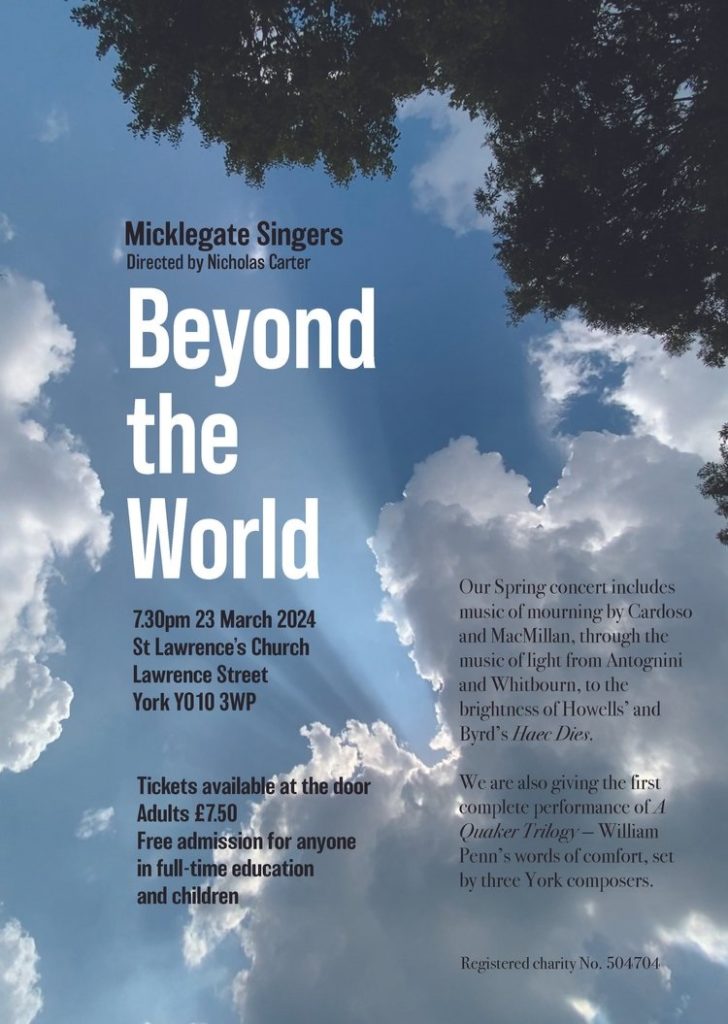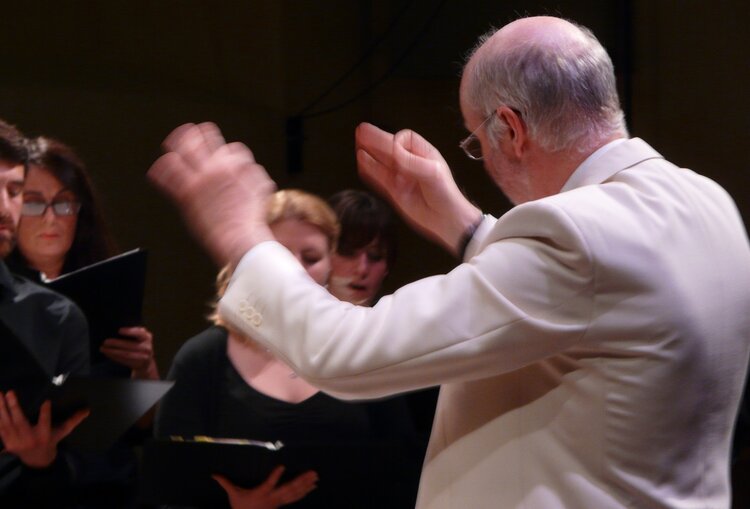
MICKLEGATE Singers will give the first complete performance of A Quaker Trilogy, William Penn’s words of comfort, set by three burgeoning York composers at Saturday’s concert at St Lawrence’s Church, Lawrence Street, York.
Those works will be Frederick Viner’s The Truest End, David McGregor’s They That Love and Joe Bates’s Absence.
“Over the last season or so, the Micklegate Singers have been drip-feeding a set of three commissions into our concert programmes by wonderful new composers from the University of York,” says chair Sarah Sketchley.
“These are based on Quaker words of comfort by William Penn, chosen by the commissioner, and are about to be performed as a full set for the first time since being published by University of York Music Press (UYMP).”
Directed by Nicholas Carter, Saturday’s Beyond The World programme also will feature music of mourning by Manuel Cardoso (Et Egressus Est A Filia Sion) and James MacMillan (Who Shall Separate Us?), through music of the light from Ivo Antognini (Lux Aeterna) and James Whitbourn (He Carried Me Away In The Spirit), to the brightness of Herbert Howells’ Haec Dies and William Byrd’s work of the same name.
Matthew Martin’s Mass of St Dominic and Ben Parry: Lighten Our Darkness will be performed too. Tickets for the 7.30pm concert will be available at the door with free admission for anyone in full-time education and accompanied children.

